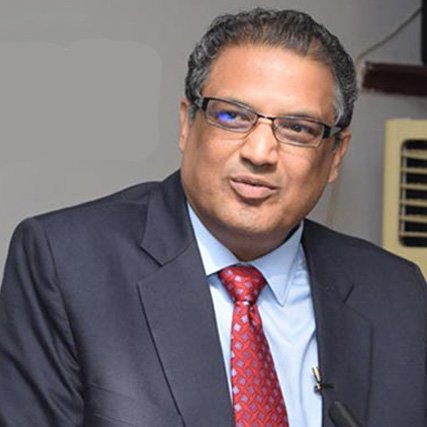English-educated people in India and Bangladesh call themselves children of Lord Macaulay. Lord Macaulay (1800-1859) emphasized on making English the medium of education in the subcontinent and teaching western science and philosophy, that is why his fans in India are proud to call themselves (CHILDREN OF MACAULAY). For at least four generations, we Urdu medium paradoxists have been basing our thinking and thought on some poems of Allama Iqbal and the characters of Naseem Hijazi’s novels. There is not even a shadow of Iqbal’s serious intellectual prose among Bashree Bibi and his contemporaries. However, Iqbal’s emotional poetry has definitely been included in the leaven of these generations, so if this generation is called (CHILDREN OF NASEEM HIJAZI), then it will not be wrong.
According to Iqbal, “Democracy is a form of government in which the servants are counted and not weighed, the soldier fights without sword, we ran horses in the sea of darkness and jumped safely into the fire of Nimrod. “Such verses and thoughts are memorized orally by the Urdu medium class and these poems have a deep involvement in their mental development and intellectual flight. The famous writer Ashfaq Ahmad said in an interview given to me for daily Jang that there is a contradiction in Iqbal’s poetry and thinking, day ka Iqbal is different and night is Iqbal different. Nor issued an explanatory statement. Ashfaq Ahmed probably thought that there is an abundance of romanticism, love and passion in poetry, but these emotions are nowhere seen in his prose and philosophy, there is only the rule of reason, and this aspect of Iqbal is different from his compatriots in the Urdu medium. Completely hidden.
Four or five generations of our Urdu medium still live in the fictional, artificial and romantic world of Naseem Hijazi. At night, this generation dreams of becoming Muhammad bin Qasim, Yusuf bin Tashfeen or Badr bin Mughirah, riding on a horse and waving victory flags in the west and east. Be it Bushra Bibi or this unusual journalist, we are all full of enthusiasm but not even touching reason and prudence, our decisions are personal or political, individual or collective.
Bushra Bibi’s political role, her thought and thought experience has become essential now. She has a lot of influence on the most popular leader of the country, apart from being his wife, she also dominates Khan’s thoughts and philosophy. Her ideology of Islam is now Khan’s ideology of Islam. Born in 1971, Bushra is now 53 years old. He was first married to Khawar Manika, a civil service officer from Manika Vito, with whom he has five children. Sufism is from spiritual figures and religious figures, but they do not seem to be convinced of reclusive Sufism, they do not consider publishing religion as a complete duty sitting in a monastery memorial, they seem to be convinced of the world of action because their favorite leader in the Islamic world is Tayyab Rajab Erdogan. Whether or not she seems convinced of Mahathir Mohamad, these two leaders were pragmatic Muslim leaders who were at odds with the Western world. Recently, in the video message that Bushra Bibi released before marching towards Islamabad, two important elements of her thought and philosophy were revealed. Expressed determination and belief that Imran Khan wants the implementation of Sharia system in the country. The second important element of this broadcast statement was that Imran Khan went barefoot in Medina as if in his opinion it is necessary to show respect and this was shown by walking barefoot in Medina, which according to Bushra Bibi Saudi people expressed disapproval. They are different from Saudi Arabia’s ideology of Islam.
Like every nation, we Pakistanis also have the right to have our own views, thoughts and ways of thinking, but there are many contradictions in our thinking, that’s why I think this is a contradiction, Bushra Bibi is also a victim of these contradictions, Allama Iqbal’s serious The thought that is in the prose will never have passed by Toshaidaan’s eyes. Of course, the same few poems that we all recite will be memorable and on the other hand, the atmosphere and map that Naseem Hijazi has drawn in his novels. That will also be preserved somewhere in their memory, that’s why they want to write their name in history like Naseem Hijazi’s brave female characters Maimuna, Tahira, Rabia and Amina, in the spiritual world they have access to the material world as well. By marching from Pakhtunkhwa towards Islamabad, he has earned the iron of his courage, the way he incited the crowd by waving his hand and his own courage and bravery remained a copy of those scenes by Naseem Hijazi. Novels were a good example. Our contradiction is actually that we consider fictional events to be true. But remember that in today’s world, intellect and technology have become heavy on emotions, enthusiasm and madness, now Rabia Akili Hijazi’s novel Shaheen cannot shape the fate of Pakistan. You cannot place your husband on the throne of victory.
History is a cruel genre. You show bravery, courage and bravery all your life but show cowardice at the last moment, then you become Abu Abdullah of history. When the last ruler of Granada shed tears while leaving, his mother slapped him and told him to fight like brave men. If you can’t, then don’t cry like the weak. When Bushra Bibi entered Islamabad in a triumphant manner, Chand Bibi looked like the Rani of Jhansi or Razia Sultan, but before the operation began, she disappeared leaving behind her supporters and followers. Granada, the fall of Dhaka and the fall of Delhi were remembered, in all these incidents the lives of the kings and leaders were saved, but the regret of the defeat could not be erased even after centuries. The Caliph of Baghdad. He ran away from fighting, but could he escape after the victory? Did the king of Granada find safety anywhere? In the fall of Dhaka, General Niazi escaped, but could he ever walk with his head up? The Mughal emperor of the fall of Delhi was imprisoned in Rangoon, could he ever rule again? The answer to all is in the negative. This world is not a novel of Naseem Hijazi, like Tipu Sultan and Siraj-ud-Daula, by sacrificing one’s life, by shedding one’s blood, one gets eternal victory, otherwise those who run away with their lives are destined for eternal defeat.
Note: This is the translation of his Urdu column published in Jang
 Colors
Colors  View Books
View Books 



